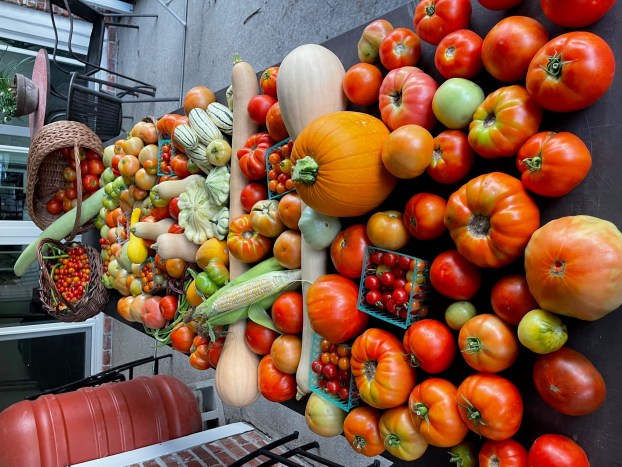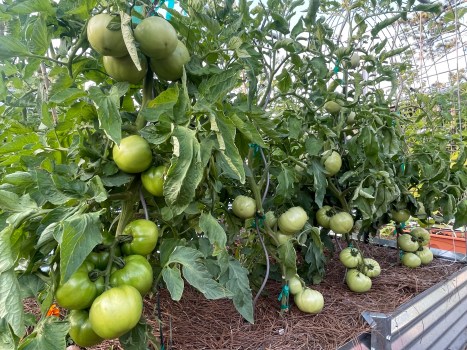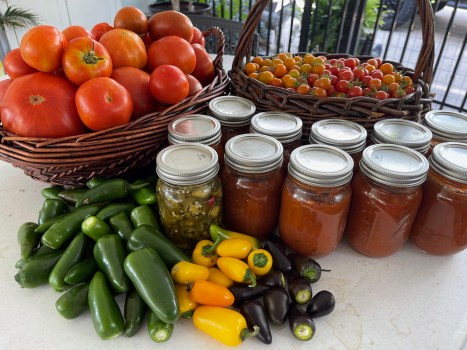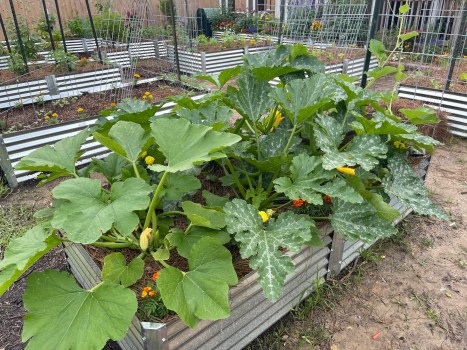Secrets to starting your first home garden off right
Published 4:53 am Friday, March 31, 2023
With the spike in food prices — the Consumer Price Index for grocery store food purchases is 10.2 percent higher than it was last year — and the fresh spring air, many are looking to nurture their own garden, and maybe even build a chicken coop.
Lori Gutierrez-Richard, creator of the popular community Facebook group called “Southwest Louisiana Gardening,” has devoted many years to creating a garden that produces food year-round.
She explained that while it takes a lot of money, time, resources and commitment to create a sustainable food source that ultimately saves you money, the process of creating a garden is full of hard work, joy and fulfillment.
Home Garden
It is best to start small when creating a home garden, said Gutierrez-Richard. By starting small, you are able to fully learn about the needs of certain plants. It also prevents garden burnout. She said new gardeners who try to grow a whole garden of plants become easily disheartened when there are failures “that make you want to quit gardening altogether.”
The next step is to choose where you would like to garden — an area of your yard that receives 6 to 8 hours of direct sunlight — and what method of gardening you’d like to use. Popular methods include in-ground, raised beds and elevated patio planters. “There is a method of gardening that can be successful for every house, apartment, duplex or RV.”
Arguably the most important step in creating a home garden is research; It is important to understand what plants are best suited for your area. Gutierrez-Richard noted that the LSU AgCenter has a free printable planting guide available online that provides vital information, such as where and when to plant depending on your area.
Growing vegetables comes with a learning curve, especially in the spring. “All spring vegetables will need a little bit of TLC to make them produce to their full potential … and every season you’ll still learn something new,” she said.
“I don’t particularly like to think of any spring vegetable as beginner or expert,” she said. “It is completely possible for a brand new gardener to grow the biggest, most beautiful tomatoes ever with the right soil, nutrients and pruning.”
She noted that some of the “easier” spring plants to tend to are cherry tomatoes, southern peas, eggplant, cucumbers, hot peppers, okra and corn. Basil and parsley are good herbs to start with, as well.
Raising Chickens
Raising chickens is a serious thing, she said. “Make sure you understand that chickens are a huge responsibility.” Like with most pets, they must be fed, sheltered, protected from predators and cared for properly. Chickens will not thrive and produce eggs if they are not properly cared for, Gutierrez-Richard explained.
The first step to raising chickens is to check in with your local Homeowners Association or research your city ordinances to see if it is allowed in your area. It is also important to know what types of chickens are allowed. Commonly, hens are allowed, but roosters are not.
She also noted that someone should not expect to save money. “Raising chickens will most likely not be less expensive than just buying eggs from other chicken owners or the store, but the pros of having them far outweigh the cons.”
She cited the benefits: the joy of having wholesome, accessible, fresh food at your disposal, the compostability of their droppings, sustainability and the overall entertainment they provide. “They’re funny and a blast to watch.”
Like home gardening, research is vital to ensure you adopt the best chickens for your yard space. “Some chickens do well in confinement in your coop and others do better when they free range in your yard. Some chickens make good pets and are great with kids and others are flighty and nervous.”
She also suggests finding mentors for gardening and chicken rearing. “It’s easier to succeed in a community.” The biggest benefit I’ve seen thus far in growing my own food, besides the beautiful daily harvests and delicious meals, is the relationships in the community I’ve formed because of it,” she explained. “Working in a garden, visiting local nurseries and talking with and meeting others with the same interest has enriched my life in a way other things do not.”










